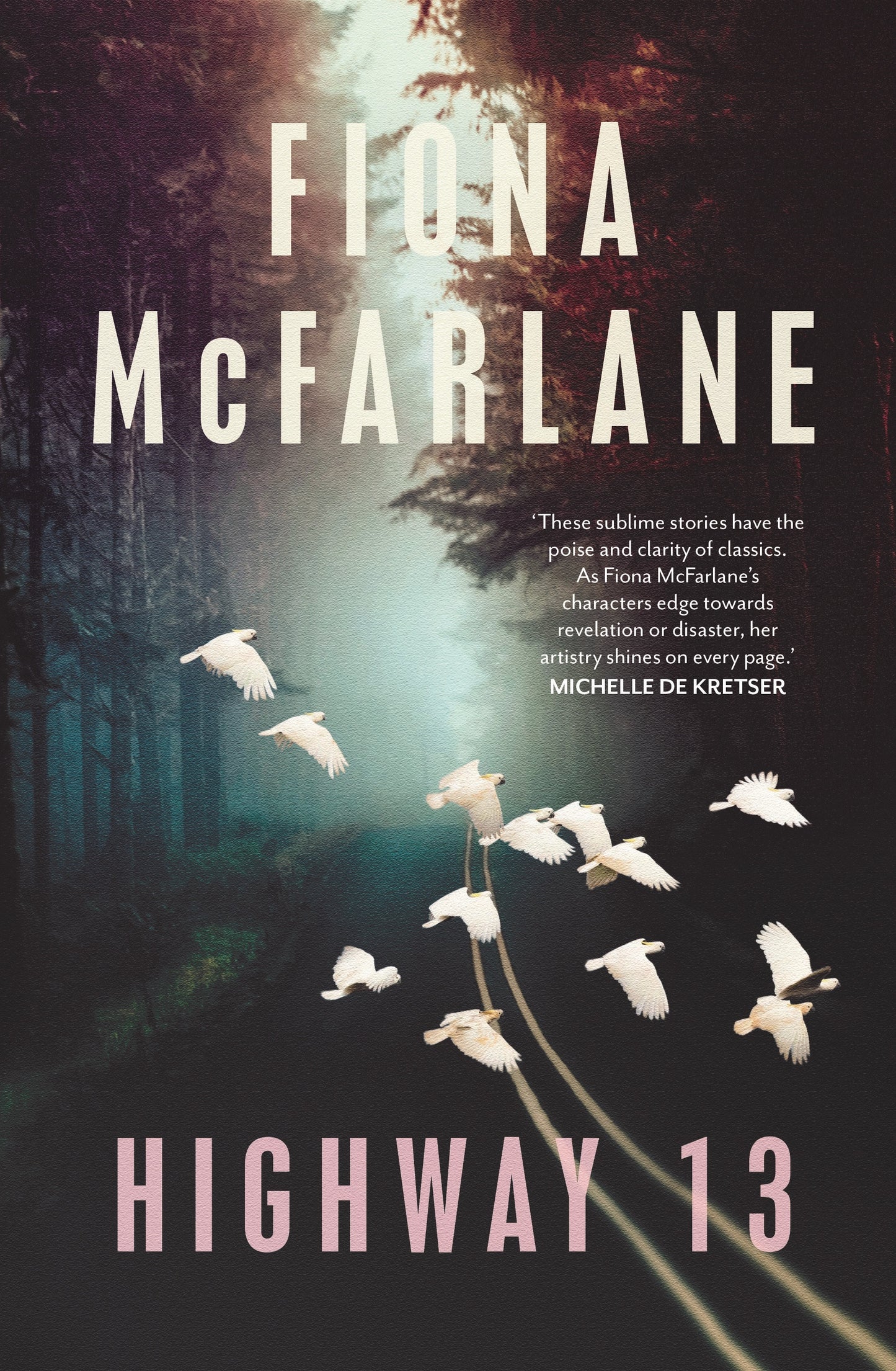Fiona McFarlane
Highway 13
Highway 13
Couldn't load pickup availability
Susan Midalia’s Review
Australian author Fiona McFarlane’s new book comes in the wake of the stunning success of her two novels and a short story collection. This highly credentialled writer has now released a second short story collection, Highway 13. In its focus on violence and a chilling sense of unease, the stories echo the portrait of Australia in McFarlane’s second novel, The Sun Walks Down – one of my top picks for 2023 – as a deeply haunted, disturbed and disturbing, land.
As the Perth Director of the Australian Short Story Festival and a decades-long reader of the genre, I’m only too aware (painfully so, if you’ll pardon the cliché), that many readers dismiss short stories as superficial and ephemeral. But as the author of four published collections, I know that it takes a great deal of hard work to write a polished short story. Each word must be the right one, deployed in exactly the right place. A memorable story requires us to be attentive not only to the words on the page but also to the gaps and silences that make up every life: the things that cannot or must not be said. A good short story also reminds us how moments in life, far from being superficial and ephemeral, can be profound and enduring: a crisis, a turning point, a disillusioning anti-climax, a birth, a death, a formative memory, a cruel word, a transformative revelation.
Fiona McFarlane’s Highway 13, in its focus on moments in time, is one of the most well-written, disturbing and clever collections I’ve read in years. It’s comprised of 12 stories, each of which centres on a murder, or series of murders. They can be read independently but they also overlap with recurring characters, settings, and re-encounters. The overall effect is an intense sense of the uncanny: familiar places like homes, service stations, hostels, parks and highways become states of anxiety and restlessness about Australian identity. Populated by backpackers, hitchhikers, immigrants and tourists, the stories create an unsettling atmosphere of both impermanence and impending danger. Set from the 1980s and beyond, one conspicuous absence is 1992, the year in which the notorious serial killer Ivan Milat was finally arrested (perhaps this is the deliberately missing story in a collection of 12). But his presence looms in the collection in the form of a fictional counterpart, Paul Biga, who like Milat, is the son of a Croatian migrant, grew up in impoverished circumstances, and murdered tourists, hitchhikers and backpackers.
Be reassured, however, that the collection’s concern with violence never lapses into sensationalism or voyeurism. On the contrary, Highway 13 can be read as a critique of western culture’s presentation of violence as a form of entertainment. Think of the countless TV shows that glorify violence, or close to home, the media coverage of the Claremont serial killer which callously disregarded the feelings of the victims’ families and friends. McFarlane’s moral concern is made explicit in the story ‘Tourist (2008),’ in which educated characters relish recounting the gruesome details of the murder of a young backpacker. Highway 13 reminds us that the victims of violence are people, not fodder for lifting ratings and sales. The collection also has space for wry humour as a form of comic relief.
I can’t recommend this collection highly enough. It’s an utterly absorbing and confronting exploration of the darkness of the nation’s psyche, as well as offering us the pleasure of careful crafting and an evocative use of language.
Publisher’s Review
’Every one of them was a whole world, full of love and curiosity, and every one of these worlds touched hundreds of others.'
A gripping, haunting work about the reverberations of a serial killer's crimes in the lives of everyday people.
In 1998, an apparently ordinary Australian man is arrested and charged with a series of brutal murders of backpackers along a highway. The news shocks the nation, bringing both horror and resolution to the victims' families, but its impact travels even further - into the past, as the murders rewrite personal histories, and into the future, as true crime podcasts and biopics tell the story of the crimes.
Highway 13 takes murder as its starting point, but it unfolds to encompass much more: through the investigation of the aftermath of this violence across time and place, from the killer's home town in country Australia to the tropical Far North, and to Texas and Rome, McFarlane presents an unforgettable, entrancing exploration of the way stories are told and spread, and at what cost.
From the acclaimed author of The Sun Walks Down and The Night Guest comes a captivating account of loss and fear, and their extended echoes in individual lives.
Praise for Highway 13:
'Highway 13 is vibrant and intricately crafted, from its taut sentences and pitch-perfect psychological observations to its very order of stories.' - The Sydney Morning Herald
'Highway 13 is a thrilling collection that explores an uncanny restlessness haunting the Australian psyche.' - The Conversation
'These sublime stories have the poise and clarity of classics. As Fiona McFarlane's characters edge towards revelation or disaster, her artistry shines on every page.' - Michelle de Kretser, author of Scary Monsters
'In Fiona McFarlane's gifted hands, this Mobius strip of linked stories bends and twists the crime genre until it is barely recognisable . . . The result is a riveting study of human nature.' - Geraldine Brooks, author of Horse
'McFarlane expands our understanding, illuminating what it is to be human . . . compulsory reading for anyone who's ever read (or written) a tale of murder.' - Hayley Scrivenor, author of Girl Falling
'McFarlane is a ventriloquist in these brilliant stories, voicing our fear and fascination around atrocity, the shocking ordinariness of its perpetrators.' - Kristina Olsson
'Every chapter is a small masterpiece in this eerie, haunting novel.' - Jack Heath, author of Kill Your Husbands
Share


